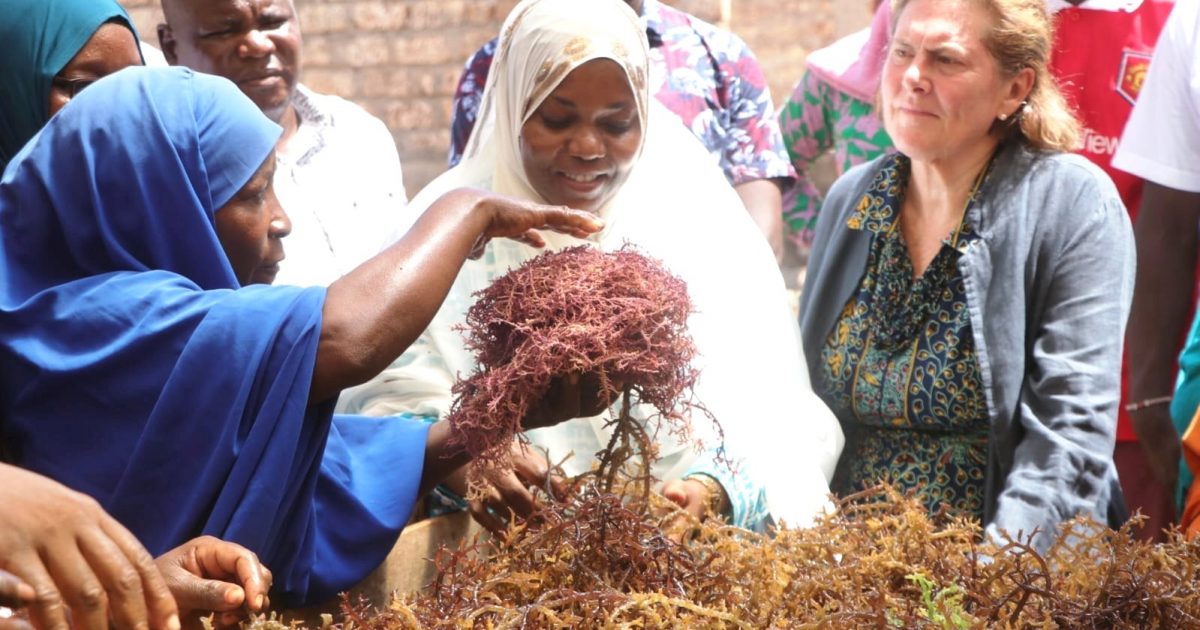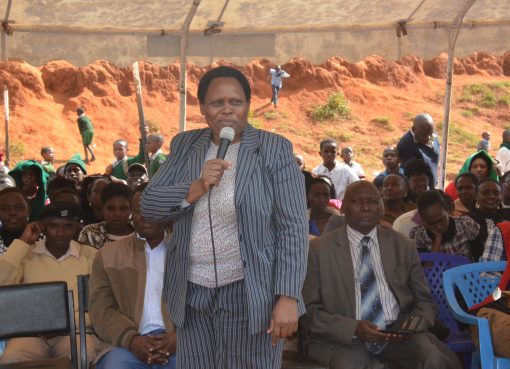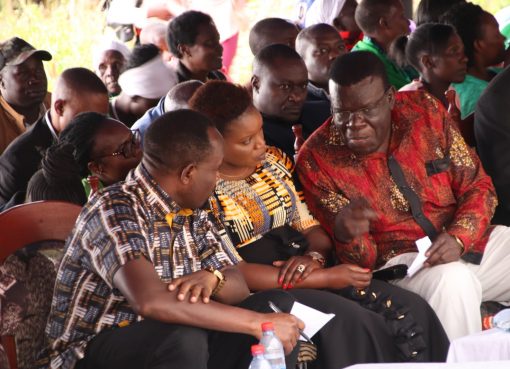Kwale County Government is focusing on seaweed farming along the shores of Indian Ocean to increase production.
The economic activity which is also known as kelp farming is the practice of cultivating and harvesting seaweed, it is a new concept seen as an alternative to fishing due to a decline in fish stocks and being a less risky activity than farming.
Area Governor Fatuma Achani says ocean farming can offer economic opportunities to local fisherfolk that have lost jobs due to declining offshore fisheries.
She says the devolved government plans to establish seaweed farming along its shoreline as part of efforts to develop the commodity in the fisheries sub-sector.
Extracts from dried seaweed can be used in the cosmetic and pharmaceutical industries as well as soil fertilizer.
Seaweed also has potential as animal feed and a packaging replacement for plastics.
Governor Achani says seaweed farming has a bright prospect and offers alternative livelihood options to coastal communities and increases food security.
She said this when she visited Kibuyuni seaweed farming sites in Shimoni area of Lunga Lunga sub county accompanied by Costarica Ambassador to Kenya Giovanna Valverde Stark.
“We have discussed key areas of partnership between the county government of Kwale and the government of Costa Rica especially in programs related to the blue economy sector and climate change,” she said.
Achani says seaweed farming has been identified as a good prospect for social and economic development and is aimed at diversifying livelihood opportunities for poor fishing communities whose livelihoods have been put at serious risk by diminished fisheries capture.
The county boss says the devolved unit and the Coastarican embassy will jointly be looking for markets for the seaweed products.
“We are working closely with our development partners to market the seaweed produced outside the country and improve local farmers’ livelihoods,” she said, adding that the county recognizes seaweed production as one of its most important aquaculture commodities.
Governor Achani noted that the seaweed industry is in its infant stages but has the potential to certainly transform the local maritime economy.
She says the devolved unit will continue to provide both material and technical support to the Kibuyuni seaweed farming communities.
“To intensify seaweed production in the area we will be offering farmer’s capacity building training and providing them with planting materials,” she said.
Governor Achani notes that seaweed farming has not only helped uplift the socio-economic condition of families along the coastline it has also helped in the recovery of its coastal waters from the threats of illegal fishing.
She says seaweed farmers are out at sea almost every day to check on their seaweed hatcheries and thus their presence has helped in reducing illegal fishing activities.
Speaking during the visit, the Kibuyuni seaweed farmers’ chairlady Fatuma Mohamed said that the sea weeds take 3 to 6 days to dry.
She said thereafter the product is cleaned and packed and sold presently to local cooperatives at Sh.30 per kilogram while the cooperative sells it at Sh. 35 per kilo.
The factory to process the seaweed was built in Kibuyuni to enable value addition and boost incomes for small scale farmers.
The farmers’ representative says two strains of seaweed known as Kappaphycus alvarezi (cottonii) and Eucheuma denticulatum (spinosum) grow on the Shimoni seaweed farming sites.
She says at the farm site, one can obtain fresh seaweed straight from the farm, dried, or in powder form.
Kenya Marine and Fisheries Research Institute (KMFRI) helped set up Kibuyuni, a seaside village of 2,500 people, as the first seaweed model farm in Kenya in 2012.
Ms. Mohamed says Kibuyuni seaweed farmers are known for their seaweed products which include body lotions, bar soaps, shower gels, shampoos, juice as well as hair food.
She noted that seaweed farming mostly employs women who previously were not allowed to engage in fishing and now womenfolk have come to appreciate it as being more lucrative than fishing and crop farming.
She says seaweed farmers would like to access the benefits available to their land-based counterparts such as crop insurance and loan programs to fuel growth in the new farming venture.
“Unlike farmers on land, seaweed farmers enjoy vast areas of waters for scaling up seaweed production with robust growth potential,” she said.
In 2019 the coastal county made history after local farmers exported 100 tonnes of seaweed to Europe at Sh.2 million.
The 100-ton consignment was loaded at the Kibuyuni Seaweed yard in Kibuyuni village, Lungalunga sub-county.
Ambassador Giovanna says her government is committed to strong action on climate change and is supporting investment in the Kwale seaweed industry, to scale-up the production of emissions-reducing seaweeds.
She says the Costarica Government is partnering with coastal counties to undertake projects that mitigate effects of climate change that lead to global warming.
Ambassador Giovanna added seaweed farming, mangrove restoration and environmental conservation are among the projects supported by the Costarica Government in the area partnership with the Kwale County Government.
She says they will work with the devolved government in large-scale seaweed cultivation to increase production and obtain a lucrative international market for the local farmers.
“Expansion of seaweed farms has the potential to boost local incomes, food security, and environmental conservation,” she said.
The envoy says processed seaweed products enter the global market where they are used as thickening agents in industrial food products and cosmetics.
Interest is also emerging for use of seaweed in sustainable animal feed, biofuels, and pharmaceuticals.
She also says the local farmers could cultivate kelp specifically to sequester it for the so-called “blue carbon farming.”
They could then sell carbon credits, in the same manner that tree planting can generate carbon credits, and this could be a vital revenue stream for the industry.
The international blue carbon initiative is a coordinated global program focused on mitigating climate change through the conservation and restoration of coastal and marine ecosystems.
Ambassador Giovanna encouraged the seaweed farming along the coastline adding that it can also be used to tackle environmental problems ranging from carbon emissions to plastic waste pollution.
By Hussein Abdullahi





